Scary Medical Diagnoses Young Women Don't Expect
There are plenty of perks to being young-and good health tends to be one of them. However, some of the diseases we typically associate with older people are actually more common in young women than you might think. The trouble is, because we aren't looking for these conditions, we often miss the first symptoms. Then, we don't see the doctor in time to stop deadly problems in their tracks. Early detection is key to surviving these five diseases, so watch out.
Heart Attacks
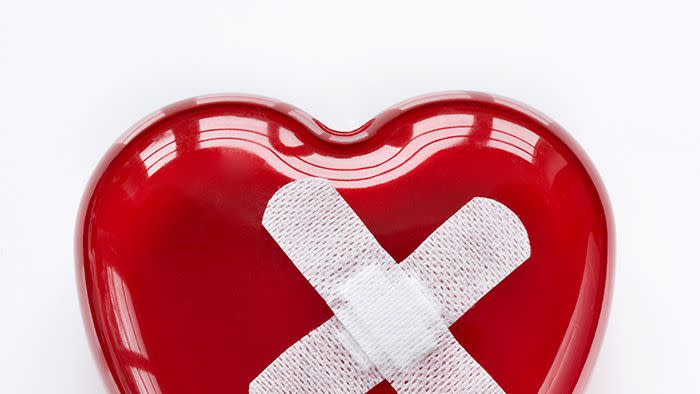
Corbis Images
More than 15,000 women under 55 die from heart disease each year, data from the Centers for Disease Control and Prevention (CDC) shows. What's more, research published in the Journal of the American College of Cardiology suggests that compared with young men, young women with heart attacks stay in the hospital longer and are more likely to die there. This could be because young women are more caught off guard when they experience the symptoms of a heart attack.
In a new study from Yale University, young female heart attack sufferers often attributed symptoms to causes other than heart disease, and they were often conflicted about seeking medical care. While chest pain and pressure is still the hallmark symptoms of a heart attack, many women also experienced indigestion, fatigue, or pain, says study author Judith Lichtman, Ph.D. "We have that Hollywood heart attack in our minds where often it's an older man who grabs their chest," she says. "With younger women, yes, they have chest pain and discomfort, but they also usually have something else." If you have unusual chest pain or pressure with or without nausea, vomiting, indigestion, excessive sweating, pain in the jaw, neck, or back, contact your doctor.
Also know that heart attacks are most common in ladies with a family history and additional risk factors such as high cholesterol. Make sure to tell your doctor about any first-degree relatives who've had a heart attack, especially in their fifties. Know your blood pressure and cholesterol numbers too. "It's much better to be proactive than to have the consequences of having an acute heart attack," says Lichtman. (Plus, be aware of the Surprising Things That Put Your Heart At Risk.)
Colorectal Cancer
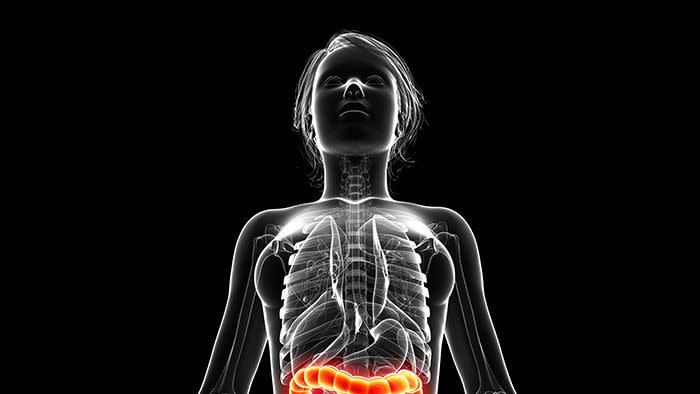
Corbis Images
Since 1993, the amount of women 20 to 49 diagnosed with colorectal cancer has grown 2.1 percent per year, according to the National Cancer Institute. Researchers have several theories as to why, some of which include a rise in certain risk factors, such as obesity and sedentary lifestyles. And since most people start colon cancer screening at 50, it can be hard to catch this disease when it strikes earlier.
It doesn't help that young people aren't thinking about colorectal cancer and tend to assume that one of its most common symptoms, rectal bleeding, is due to hemorrhoids, says Dennis Ahnen, M.D., a professor of medicine at the University of Colorado. Although hemorrhoids are common, see your doc just in case if you notice blood on the toilet tissue or in the bowl. In addition, talk to your doctor about any family history of colorectal cancer. Although most people begin yearly colonoscopies at 50, your doctor may start screening at 40 or even earlier if you have a strong family history, says Ahnen.
Alzheimer's Disease
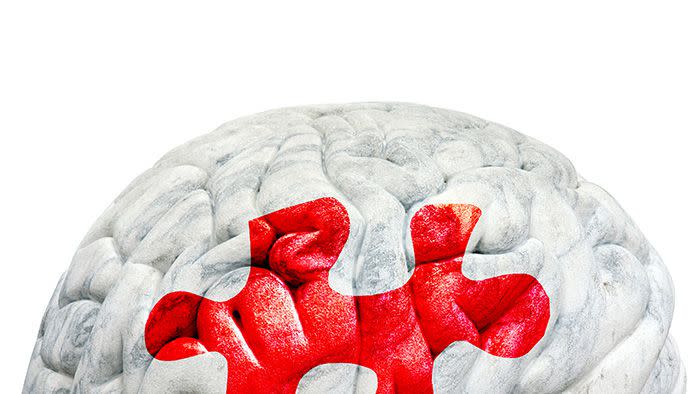
Corbis Images
Research suggests that only 1 to 5 percent of people diagnosed with Alzheimer's are under 65-but even if you feel sharp as a tack, it's possible that your brain is already changing. "There are two Alzheimer's disease risk genes-APOE and CLU-which seem to affect the brain much earlier in life, probably 50 years before symptoms begin," says Paul Thompson, M.D., a neurologist and associate dean for research at USC's Keck School of Medicine.
His research showed that carriers of the "bad" form of APOE-around 25 percent of people-already had small amounts of shrinkage in the hippocampus, the memory area of the brain, in their early 30s. This worsened as they aged. "In our 30s, the brain differences are very small and certainly not enough to cause any problems," says Thompson. "It's a bit like water pipes getting rusty-it's not going to be noticed until well after the process has begun and the pipes break."
Fortunately, there's a lot you can do to stave off these brain changes. Exercise lowers stress and transports oxygen-rich blood into your brain, says Thompson. When researchers look at brain scans, they find that exercisers' brains look younger. Recent research from New York University also suggests that following a Mediterranean diet can help stave off Alzheimer's-related brain changes. (FYI: These are the Best Foods to Prevent Alzheimer's.)
Skin Cancer
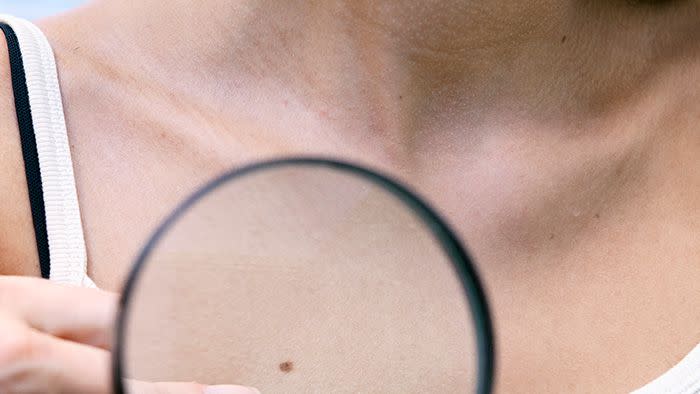
Corbis Images
Although your skin will change a lot with aging (hello, wrinkles and sun spots!), you should already be looking for potentially cancerous additions. In a recent study published in Dermatologic Surgery, dermatologists at a busy practice reported that the majority of melanomas and basal cell carcinomas they saw were in women 10 to 49. Young ladies also had high numbers of squamous cell carcinomas.
"Traditionally, skin cancers were most commonly seen in men, and especially, older men," says study author Ming H. Jih, M.D., Ph.D., of DermSurgery Associates in Houston. "This new trend shows an epidemic of increasing skin cancers in younger women." Sun exposure and indoor tanning are big contributors. "The majority of young women that we see in our office have used tanning beds at least occasionally," says Jih. Another problem: Women don't take steps to protect their hide, because they think they're too young to suffer consequences of that sunburn. "Younger women definitely are shocked when they are diagnosed with skin cancer," says Jih.
Your best bet? Avoid tanning, use SPF 30 or higher sunscreen on all exposed skin, and make sure to apply thoroughly on the spots people tend to forget, such as the backs of your hands and your neck and chest, says Jih. Bonus: You'll reduce wrinkling on those areas, which are often early giveaways of how many candles are on your birthday cake. Consider sun protective clothing too, especially if you're going out in water, which can rinse away sunscreen. Then, schedule regular skin exams with a dermatologist to catch suspicious spots early. (Keep covered with one of 20 Sun Products to Help Protect Your Skin.)
Strokes
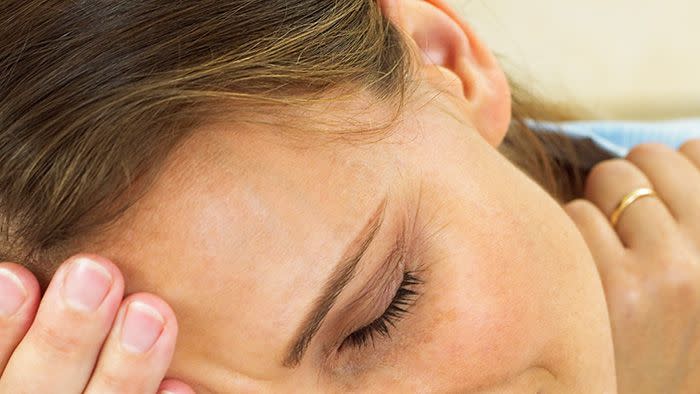
Corbis Images
A landmark study published in Annals of Neurology suggests that an increasing number of females 15 to 44 are being hospitalized for strokes. That's scary because even if you survive a stroke, it may leave you with long-term problems. Young women who survive were 3.6 times as likely to die over the following 20 years than women who didn't suffer a brain attack, according to a study published in the Journal of the American Medical Association.
Here's something even scarier: Researchers in Ireland recently interviewed young female stroke patients and found that some of them discounted symptoms such as headaches and arm weakness, thinking that they were too young to be having a stroke. That led to a delay in treatment. To stay safe, remember the American Stroke Association's acronym, FAST-"face drooping, arm weakness, speech difficulty? Time to call 9-1-1." Other symptoms: sudden numbness or weakness of a leg, arm, or face; sudden confusion or trouble understanding; sudden trouble seeing in one or both eyes; sudden trouble walking; dizziness; loss of balance or coordination; and sudden severe headache with no known cause.

